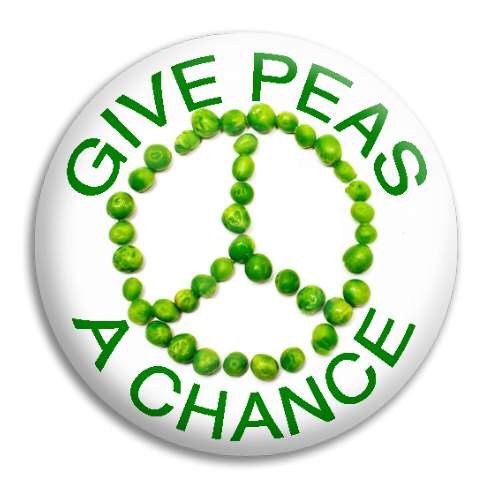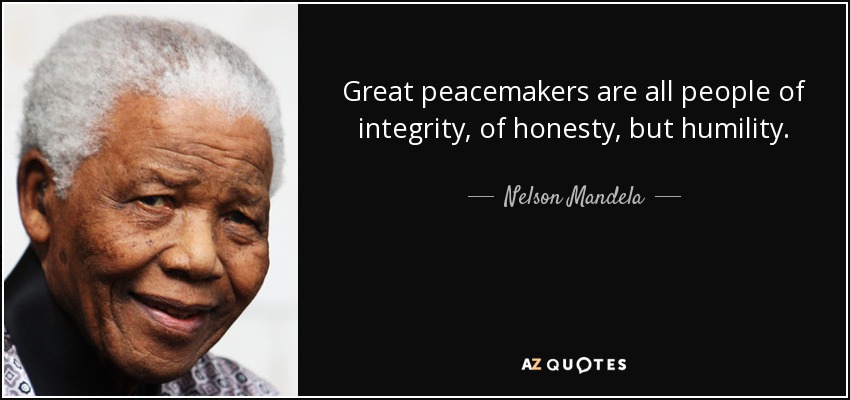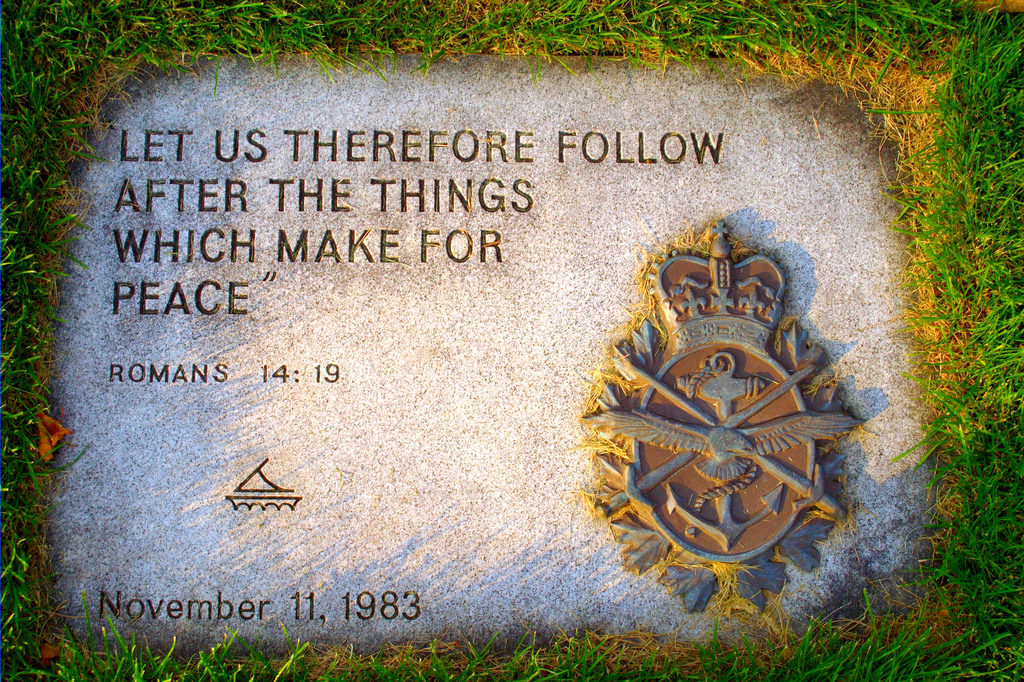Click here to return to Blog Post Intro
The Search for Peace
Unfortunately, while many wish for “world peace (not whirled peas)”, there is no peace in the world. The world’s peacemakers have a terrible record. Someone has said, “Washington has lots of peace monuments. They build one after each war.”
In the aftermath of World War II in 1945, the United Nations was created with the motto: “To have succeeding generations free from the scourge of war.” Since that time, there has not been one day of peace on the earth. Not one.
What Does “Peace” Really Mean?
Some people define peace as the absence of conflict or strife, but the words peace and appeasement are not synonyms.
As God sees it, peace is far more than the absence of something. It is the presence of righteousness that causes right relationships. Peace is not just stopping war; peace is creating righteousness that brings enemies together in love.
When a Jew says shalom, he means, “May you have all the righteousness and goodness God can give.” Shalom means a state of completeness, wholeness, unity, fulfillment. It refers to emotional, physical, relational, and financial well-being, and even encompasses safety. Shalom is the state in which God wants His people to live. In His shalom, you are not promised wealth, but you are promised provision. God is the source of peace, Jesus is the manifestation of peace, and the Holy Spirit is the agency of peace. Galatians 5:22 says, “The fruit of the Spirit is love, joy, peace.”
Biblical peacemakers are not quiet, easygoing people who just want to make no waves or no issues, who lack justice and a sense of righteousness, who are compromisers and appeasers. People say, “Oh, he’s such a peacemaker” when they really mean, “He has no conviction.” He does not say, “I know the person’s doing wrong, but I would rather just have a peaceful situation. I just want to keep the peace.” That’s a cop-out.
So, the meaning of peace is resolving conflict by the truth, as you bring to bear the righteousness of God. Peace comes from the inside and spreads to those around you.
People of the world bow to the great god of macho. The virile, the “take-nothin’-from-nobody,” the hard-nosed, the tough, the wild, the self-sufficient. Those are the heroes. The heroines are the women who lead the fight for rights and make demands, who stir up strife and contention and fight traditions.
We are a whole society of people fighting for our rights and exalting ourselves. We are told by psychologist and pyschiatrists and behaviorists, “Get all you can for yourself. Don’t let anybody take anything from you.” No wonder the Jews didn’t like Jesus Christ. They wanted a fighter.
Jesus makes demands that are impossible to obey. He is talking to an audience that is more accustomed to discussing the behavioral rules than heart conditions. “Give me a rule to follow so I can be righteous! Give me a law to obey that will bring me eternal life!” Instead, Jesus lays out a law that cannot be kept from the outside, but can only be obeyed by Jesus living in you, transforming your heart, imparting His power and life.
Jesus tells us to make peace. Create something out of nothing. Peace isn’t there until you make it. Create it. Don’t be satisfied with keeping things on even keel. Bring peace out of chaos and disorder. Be like your Father.
How Do You Bring Peace?
The call to live in the kingdom is not a call to live in a bubble. It is a call to live in the nitty-gritty, rubber-meets-the-road reality of planet earth.
The previous Beatitude talks about the “pure in heart,” and only those can proceed to this Beatitude and become peacemakers. Consider this: when righteousness works, what does it fashion? What is its workmanship—the fruit of its labor? What is its masterpiece? Peace.
If you have righteousness, purity, and holiness in your life, you will have peace. And if you have righteousness, purity, and holiness in your marriage, nation, or home, peace will be there, too. Simply put, a person who is filled with peace will diffuse peace into relationships and situations.
If you see a person living in sin, a peacemaker—as Jesus calls us to be—would go to the person and say, “You’re offending a holy God. You are, by your very life, at war with God. I want to make peace between you and God, so I’m confronting you with your sin and offering you the gospel of Jesus Christ.”
If you see two Christians fighting, a peacemaker says, “You must resolve this righteously with one another.” Being a peacemaker is not avoiding the issue; it’s dividing right into the middle of it and trying to bring about a righteous solution.
Even if we are not personally involved in a dispute, we may find ourselves struggling to reconcile to each other two people or groups who are estranged and at variance with each other. In this case, there will be the pain of listening, of ridding ourselves of prejudice, or of striving sympathetically to understand both the opposing points of view, and of risking misunderstanding, ingratitude, or failure.
We are the messengers of peace. We are God’s peace corps in the truest sense. You may be wondering, as a peacemaker, what do I do? Here are three things:
- Make peace with God yourself. As Paul said in Ephesians 6:15, “Having shod your feet with the preparation of the gospel of peace.”
- Help others to make peace with God. Evangelism is peacemaking. Tell somebody about Jesus Christ.
- Make peace with men; bring them together with each other. A peacemaker builds bridges between people. That’s why Paul wrote, “If possible, so far as it depends on you, be at peace with all men” (Romans 12:18). Jesus also said, “Be at peace with one another” (Mark 9:50).
What Does It Mean to be a Son of God?
God has a personal, eternal love for you. Gods bears with your weakness and your sin. God accepts your imperfect service. God provides for your every need. Finally, God makes you an heir to everything He possesses.
Let’s add some other layers, each legitimate inferences in the context and from the word “Sons.” It can mean “to invite or to call oneself.” It is also the word used for the call of God—the appointment. It can refer to a summons. It can mean “to call out loud—to call to.”
Radical, outrageous peacemakers are known as sons of God. People who observe them can’t help but notice the likeness. God has invited them to Himself, called them out to set them apart. God has summoned them and called out loud, “Son! You are a peacemaker!”
The peacemakers are like their Father in several ways:
- They reach out to make peace at cost to themselves.
- They make peace. They create peace from scratch.
- They find pleasure in creating peace where chaos had been.
May you be a peacemaker, as you shoot for the stars!
Credits:
- John MacArthur’s The Beatitudes: The Only Way to Happiness (1980);
- Jennifer Kennedy Dean’s Set Apart: A 6-Week Study of the Beatitudes (2015); and
- John Stott’s The Beatitudes: Developing Spiritual Character (1998)




